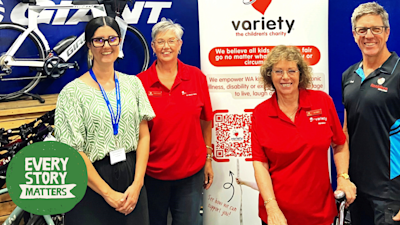We are helping young women as they transition into independent living from foster care by providing self-defence classes, to build both their self-worth and their safety.

Image: The young women attend self-defence classes
When an idea is nurtured into action, it can provide some fantastic avenues for supporting positive change. Belinda*, Case Manager from the Qld Transition from Care Team, came up with an idea to provide exercise and empowerment to the young women she works with who are transitioning into independent living from foster care. She introduced self-defence classes one afternoon a week and the young women have connected really strongly with the program. The classes are run by a respected martial arts expert in the local area, who works regularly with domestic and family violence (DFV) and sexual assault services.
The classes are proving to be therapeutic in so many ways, particularly as the young women have all been exposed to significant violence in the family home as children, and then entered into similar dynamics in their intimate relationships as adolescents.
“I was having a chat with one of the girls, and she had been seeing this guy and said she wasn’t sure about him,” said Belinda. “I asked what she meant, and she said “You know how our instructor talks about gut feelings and when men make you feel uncomfortable, you should listen to yourself?” As a result she made the decision to stop seeing him. She grew up with horrific domestic violence from her own parents as a child, so I felt hopeful from that.” --Belinda, Transition from Care Team
The classes focus on more than just physical safety. They allow discussion about healthy relationships, domestic and family violence and self-confidence. “Each young woman is encouraged to attend every week for ten weeks, even when they are experiencing significant personal crises,” explained Belinda. “One of the added bonuses is the time spent talking in the car trip to and from the sessions, where the young people emotionally support each other. They also feel safe and comfortable enough to access our support with their own DFV situations.”
“So the payoff has really been changing their values and understanding what healthy relationships look like. There’s also the added bonus of forming a strong connection with the instructor, a male; and the conversations they have with each other about safety and their own worth.”
— Belinda, Transition from Care Team
They have all found new confidence through action. Last week they were given a challenge of breaking through a solid wooden board,” said Belinda. “They all started with really negative self-talk and were sure they couldn’t do it, but they all smashed through the wood with no problems at all.”


